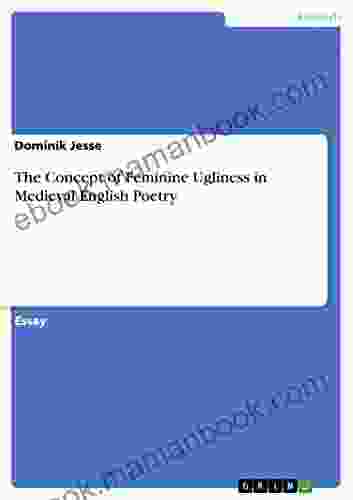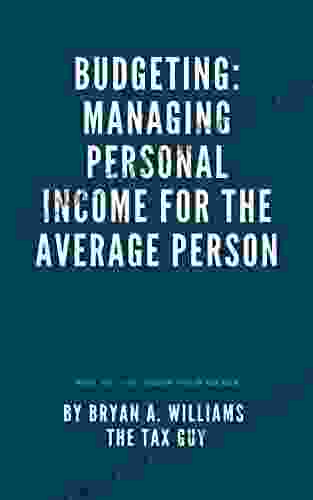The Concept of Feminine Ugliness in Medieval English Poetry: A Comprehensive Examination

The concept of feminine ugliness has been a subject of fascination and debate throughout history, and it is no less prevalent in medieval English poetry. While beauty was often celebrated and idealized in this period, ugliness was also a recognized and explored concept, particularly in relation to women. This article aims to provide a comprehensive examination of the concept of feminine ugliness in medieval English poetry, exploring its various manifestations, interpretations, and cultural significance.
Manifestations of Feminine Ugliness
In medieval English poetry, feminine ugliness could manifest itself in a variety of ways, both physical and moral. Physical ugliness often included deformities such as crooked limbs, disfigured faces, and excessive hair. Moral ugliness, on the other hand, referred to attributes such as wickedness, deceitfulness, and lasciviousness.
5 out of 5
| Language | : | German |
| File size | : | 518 KB |
| Screen Reader | : | Supported |
| Print length | : | 8 pages |
| Paperback | : | 60 pages |
| Item Weight | : | 5 ounces |
| Dimensions | : | 6 x 0.14 x 9 inches |
One of the most striking examples of physical ugliness in medieval English poetry is the character of Grendel's mother in Beowulf. She is described as a "she-wolf" with "fearful fangs" and "blood-stained claws," embodying the monstrous and terrifying aspects of feminine ugliness.
Moral ugliness is also prevalent in medieval English poetry. In The Canterbury Tales, Chaucer's Wife of Bath is depicted as a lustful and manipulative woman who uses her sexuality to control men. Her physical beauty is contrasted with her moral depravity, creating a complex and contradictory portrayal of female ugliness.
Interpretations of Feminine Ugliness
The interpretations of feminine ugliness in medieval English poetry varied widely. Some poets saw it as a reflection of inner wickedness, while others viewed it as a consequence of social inequality.
In some cases, feminine ugliness was seen as a sign of the Fall of Man. In this view, women were held responsible for the of sin into the world, and their ugliness was a manifestation of their fallen nature.
Other poets, however, challenged this view and argued that feminine ugliness was often the result of social injustice. They pointed to the fact that women were often denied education and opportunities, and that this could lead to a lack of self-esteem and a sense of inadequacy.
Cultural Significance of Feminine Ugliness
The concept of feminine ugliness in medieval English poetry had a profound cultural significance. It reflected the prevailing social attitudes towards women and their role in society.
In a society that placed a high value on physical beauty and female chastity, ugliness was seen as a threat to social order. Ugly women were often marginalized and excluded from social circles.
However, the concept of feminine ugliness also had a subversive potential. By challenging the prevailing beauty standards, poets could question the social hierarchy and the role of women in medieval society.
The concept of feminine ugliness in medieval English poetry is a multifaceted and complex one. It encompasses a range of manifestations, interpretations, and cultural significances. Through an examination of the various ways in which feminine ugliness is portrayed in medieval English poetry, we gain a deeper understanding of the social attitudes and values of the period.
While feminine ugliness can be seen as a reflection of the misogyny and social inequality that existed in medieval England, it also has the potential to be a subversive and challenging force. By questioning the prevailing beauty standards and the role of women in society, poets could open up space for a more equitable and inclusive world.
References
- Benton, Janette. Beauty and Ugliness in the Later Middle Ages. Oxford University Press, 2020.
- Chaucer, Geoffrey. The Canterbury Tales. Translated by David Wright. Oxford University Press, 2008.
- Goldberg, Jonathan. "The Monster in the Mirror: Feminine Ugliness in Medieval English Literature." ELH, vol. 63, no. 1, 1996, pp. 1-31.
- Labarge, Margaret Wade. Women in Medieval Life. Hambledon Continuum, 1997.
- Phillips, Kim M. "The Ugly Woman in Medieval Literature." Studies in English Literature, 1500-1900, vol. 42, no. 1, 2002, pp. 1-18.
5 out of 5
| Language | : | German |
| File size | : | 518 KB |
| Screen Reader | : | Supported |
| Print length | : | 8 pages |
| Paperback | : | 60 pages |
| Item Weight | : | 5 ounces |
| Dimensions | : | 6 x 0.14 x 9 inches |
Do you want to contribute by writing guest posts on this blog?
Please contact us and send us a resume of previous articles that you have written.
 Top Book
Top Book Novel
Novel Fiction
Fiction Nonfiction
Nonfiction Literature
Literature Paperback
Paperback Hardcover
Hardcover E-book
E-book Audiobook
Audiobook Bestseller
Bestseller Classic
Classic Mystery
Mystery Thriller
Thriller Romance
Romance Fantasy
Fantasy Science Fiction
Science Fiction Biography
Biography Memoir
Memoir Autobiography
Autobiography Poetry
Poetry Drama
Drama Historical Fiction
Historical Fiction Self-help
Self-help Young Adult
Young Adult Childrens Books
Childrens Books Graphic Novel
Graphic Novel Anthology
Anthology Series
Series Encyclopedia
Encyclopedia Reference
Reference Guidebook
Guidebook Textbook
Textbook Workbook
Workbook Journal
Journal Diary
Diary Manuscript
Manuscript Folio
Folio Pulp Fiction
Pulp Fiction Short Stories
Short Stories Fairy Tales
Fairy Tales Fables
Fables Mythology
Mythology Philosophy
Philosophy Religion
Religion Spirituality
Spirituality Essays
Essays Critique
Critique Commentary
Commentary Glossary
Glossary Bibliography
Bibliography Index
Index Table of Contents
Table of Contents Preface
Preface Introduction
Introduction Foreword
Foreword Afterword
Afterword Appendices
Appendices Annotations
Annotations Footnotes
Footnotes Epilogue
Epilogue Prologue
Prologue Cynthia L Uline
Cynthia L Uline Ugo Bardi
Ugo Bardi Ella Cooper
Ella Cooper Paul Kingery
Paul Kingery Barry W Sweeny
Barry W Sweeny Pierre Weber
Pierre Weber Pierre Reverdy
Pierre Reverdy Bryan A Williams
Bryan A Williams Tyler Menze
Tyler Menze Thomas Hager
Thomas Hager Cody Smith
Cody Smith John Kember
John Kember Caitlin Mitchell
Caitlin Mitchell Johanna Bell
Johanna Bell Sarah Kendzior
Sarah Kendzior Marie James
Marie James Murasaki Shikibu
Murasaki Shikibu John Pinder
John Pinder Katherine Neville
Katherine Neville Playboy
Playboy
Light bulbAdvertise smarter! Our strategic ad space ensures maximum exposure. Reserve your spot today!
 Daniel KnightFollow ·6.3k
Daniel KnightFollow ·6.3k Bo CoxFollow ·15.7k
Bo CoxFollow ·15.7k Arthur C. ClarkeFollow ·12.8k
Arthur C. ClarkeFollow ·12.8k Alex FosterFollow ·4.2k
Alex FosterFollow ·4.2k W. Somerset MaughamFollow ·2k
W. Somerset MaughamFollow ·2k Sidney CoxFollow ·11.4k
Sidney CoxFollow ·11.4k Rodney ParkerFollow ·15.4k
Rodney ParkerFollow ·15.4k Stanley BellFollow ·9.5k
Stanley BellFollow ·9.5k
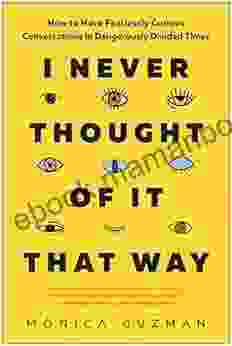
 Ross Nelson
Ross NelsonHow to Have Fearlessly Curious Conversations in...
In a world increasingly polarized by...

 Isaac Mitchell
Isaac MitchellFew Things to Keep in Mind for a Successful Introduction...
Writing an series...

 Dallas Turner
Dallas TurnerThe Ultimate Easy Key for Beginners: A Comprehensive...
Welcome to the world of...
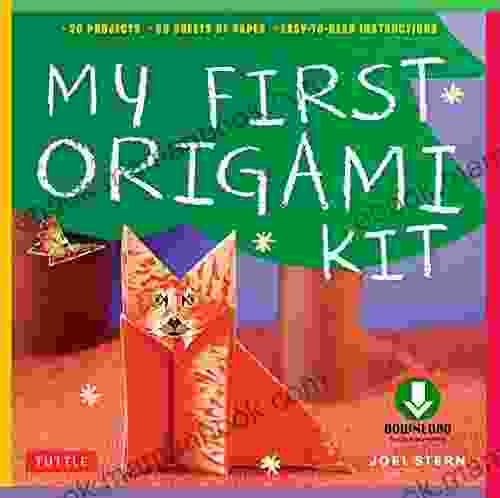
 Mitch Foster
Mitch FosterMy First Origami Kit: Ebook Downloadable Material...
Origami, the...
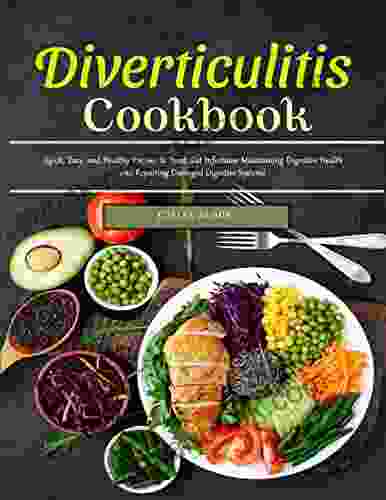
 Tony Carter
Tony CarterQuick, Easy, and Healthy Recipes to Treat Gut Infections...
Gut infections are a common problem that can...
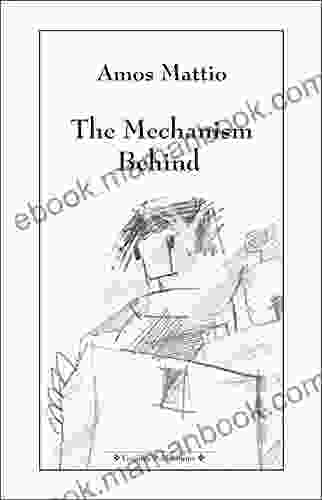
 Adrian Ward
Adrian WardThe Mechanism Behind Italian Poetry In English: Poesia...
The world of...
5 out of 5
| Language | : | German |
| File size | : | 518 KB |
| Screen Reader | : | Supported |
| Print length | : | 8 pages |
| Paperback | : | 60 pages |
| Item Weight | : | 5 ounces |
| Dimensions | : | 6 x 0.14 x 9 inches |


